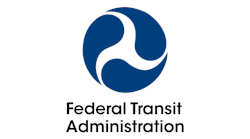The Federal Transit Administration (FTA) published a letter rescinding a June 2018 “Dear Colleague” letter from the previous administration that transportation advocates, such as Transportation for America, said “added strenuous requirements to the Capital Investment Grants Program.”
As a refresher, the FTA under the Trump Administration issued a “Dear Colleague” letter to transit agencies in June 2018 that communicated the administration’s view that federal loans would be weighed as part of a CIG Program project’s federal share and not the local share.
At the time of the 2018 letter, FTA noted the “process through which a project advances” in the CIG Program “and FTA decides whether to enter into a construction grant agreement, is ultimately a discretionary one.”
The 2018 letter continued, “Given the competitive nature of this discretionary program, the statute specifically urges FTA to consider the extent to which the project has a local financial commitment that exceeds the required non-government share of the cost of the project. To this end, FTA considers U.S. Department of Transportation loans in the context of all federal funding sources requested by the project sponsor when completing the CIG evaluation process, and not as separate from the federal funding sources. Strong local financial commitment and stable, reliable and dependable non-federal funding sources are necessary for projects to do well in the CIG program. The FTA strongly encourages project sponsors to consider innovative financing and funding approaches, including value capture and private contributions.”
The Feb. 16, 2021, FTA letter is short and states it is rescinding the June 2018 letter. It states FTA will evaluate projects based on statutory framework, regulation (Major Capital Investment Projects Final Rule at 49 CFR Part 611) and CIG Final Interim Policy Guidance that was published in June 2016.
House Transportation & Infrastructure Committee Chair Peter DeFazio (D-OR-4) called the Trump Administration guidance “rubbish” and applauded the move to rescind it as a way to “restore the idea that the federal government should be a partner—not an adversary—to communities that are marshalling their own resources to try and break ground on badly-needed infrastructure projects that move this country forward.”
Sen. Bob Menendez (D-N.J.) said the “ill-conceived policy” was an obstacle to stall the Gateway Program, which has two projects in the CIG Program; the Portal Bridge for which a $766.5-million grant agreement was awarded in January 2021 and the Hudson Tunnel Project.
“Much like a mortgage loan to buy a house, federal loans that must be repaid by states and other local entities applying for federal transportation grants have long been considered as part of the local funding match,” said Sen. Menendez.





